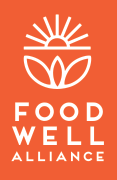Urban Agriculture In The Westside: Growing Community Resilience And Healing - Saporta Report
/When Food Well Alliance was founded in 2015, the number of community gardens, urban farms, and farmers markets across metro Atlanta was noticeably on the rise. The recognition of disparities in access to healthy food and its connection to chronic, diet-related disease had reached national attention. And at the same time, the concept of a “local food movement” was now commonly used to describe a growing trend of consumers and farmers promoting locally grown food as an environmental alternative to industrial, chemically-intensive agriculture.
Indeed, the paradox of local food in Atlanta — who has access to it, how it’s grown, and where it comes from — galvanized Food Well Alliance’s mission from the start. We spent the first three years convening hundreds of community leaders, policymakers, and urban growers listening to the challenges they collectively faced and validating potential solutions. Since 2015, we have regranted $3.5 million from the James M. Cox Foundation directly into over 150 organizations — farms, gardens, entrepreneurs, nonprofits — who were all using locally grown food to rebuild communities in metro Atlanta.
We learned a lot. When Food Well Alliance published Atlanta’s first Local Food Baseline Report in 2017, it revealed that simply increasing access to food retailers did not directly affect food choices and health outcomes. Rather, when you invest in a community garden or urban farm, the “return” is in the health of residents, the safety of neighborhoods, and the environmental quality of ecosystems. Gardens and farms produce so much more than healthy, local food. They are intergenerational community hubs; they are educational spaces; they are inspiration for self-reliance and healing.
Read more at Saporta Report




